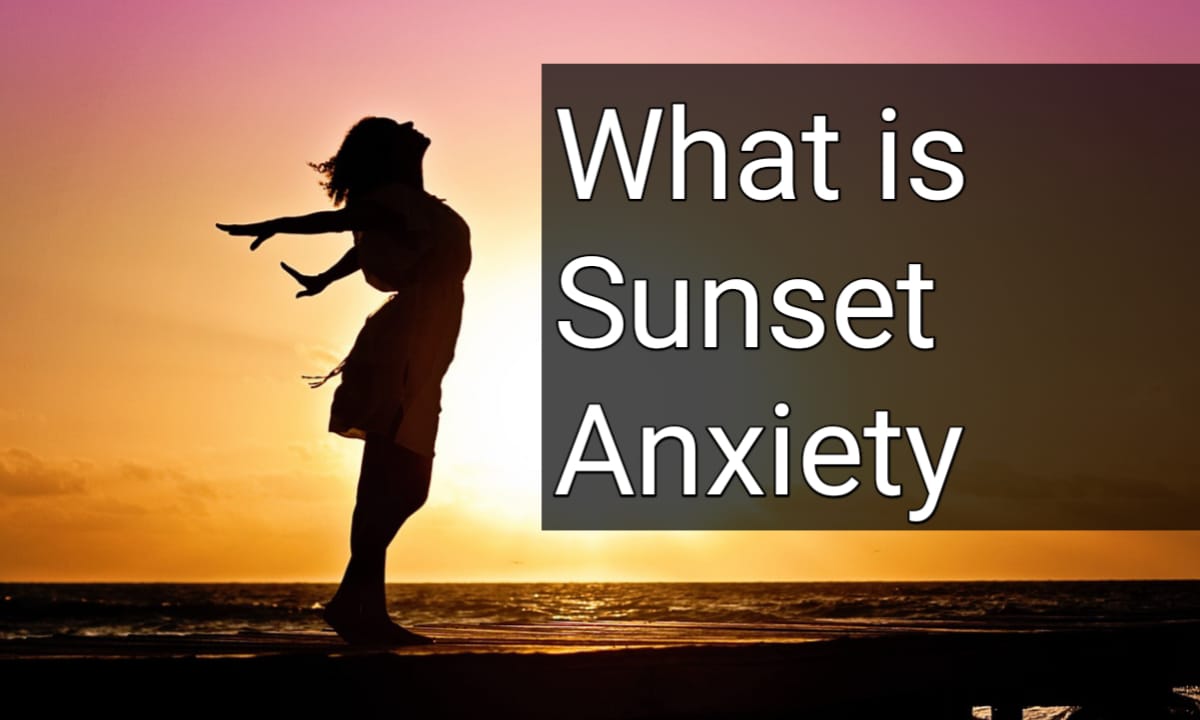What is Sunset Anxiety: Sunset anxiety is a phenomenon where individuals feel heightened anxiety, sadness, or restlessness as the day transitions to night. Though not a clinical diagnosis, it is a real emotional experience for many people. The term captures the mix of unease and foreboding that can emerge as daylight fades, disrupting the sense of calm associated with daytime routines.
This form of anxiety is not universal, but it can occur in various contexts. For some, it might be tied to the fear of darkness or loneliness. For others, it could stem from a psychological association with unfinished tasks, loss, or a sense of the day slipping away.
What is Sunset Anxiety: What Causes Sunset Anxiety?
- Biological Factors
Our bodies are deeply connected to natural light. The brain’s production of melatonin, the hormone that regulates sleep, increases as darkness falls. While this is a normal process, the shift can sometimes trigger feelings of fatigue and irritability in people sensitive to changes in light. - Fear of Isolation or Loneliness
Dusk often signals the end of social interactions or a busy day. For those who live alone or feel emotionally isolated, the quiet of the evening can exacerbate feelings of loneliness. - Unresolved Stress
As the day ends, people often reflect on what they’ve achieved—or failed to accomplish—leading to heightened stress or self-criticism. Thoughts of impending responsibilities for the next day can also contribute to unease. - Seasonal Affective Disorder (SAD)
In the colder months, when the sun sets earlier, the lack of light can trigger or worsen symptoms of depression and anxiety. This condition, known as seasonal affective disorder, might amplify feelings of sunset anxiety. - Childhood Associations
For some, sunset anxiety may be rooted in childhood experiences, such as fear of the dark or bedtime separation from loved ones. These associations can linger into adulthood.
What is Sunset Anxiety: Symptoms of Sunset Anxiety
What is Sunset Anxiety: Sunset anxiety manifests in different ways, including:
- Unease or restlessness during twilight hours
- Increased heart rate or feelings of dread
- A tendency to overthink or ruminate about the day
- Difficulty transitioning into evening activities or routines
What is Sunset Anxiety: Coping Strategies
- Establish an Evening Routine
Creating a structured, calming routine for the evening can help transition your mind and body from day to night. Activities like journaling, reading, or practicing mindfulness can provide a sense of control and comfort. - Light Therapy
If the loss of daylight triggers your anxiety, consider using light therapy lamps to simulate natural light. This can help regulate your mood and reduce the impact of darkness. - Connect with Others
Reaching out to friends or family during the evening can help combat loneliness. Virtual calls, messages, or even scheduling activities like dinner with loved ones can make the evening less daunting. - Focus on the Positives
Shift your perspective by viewing sunset as a time of closure and gratitude. Reflect on what went well during the day, no matter how small, and embrace the opportunity for rest and rejuvenation. - Seek Professional Help
If sunset anxiety significantly disrupts your daily life, consulting a therapist or counselor can provide insights and coping mechanisms tailored to your experience.
What Causes Sunset Anxiety: Conclusion
What is Sunset Anxiety: While sunsets are often celebrated as beautiful and serene, they can evoke complex emotions for those experiencing sunset anxiety. Recognizing and understanding these feelings is the first step toward addressing them. By building supportive routines, practicing self-compassion, and seeking help when needed, it’s possible to navigate the twilight hours with greater ease and comfort.
